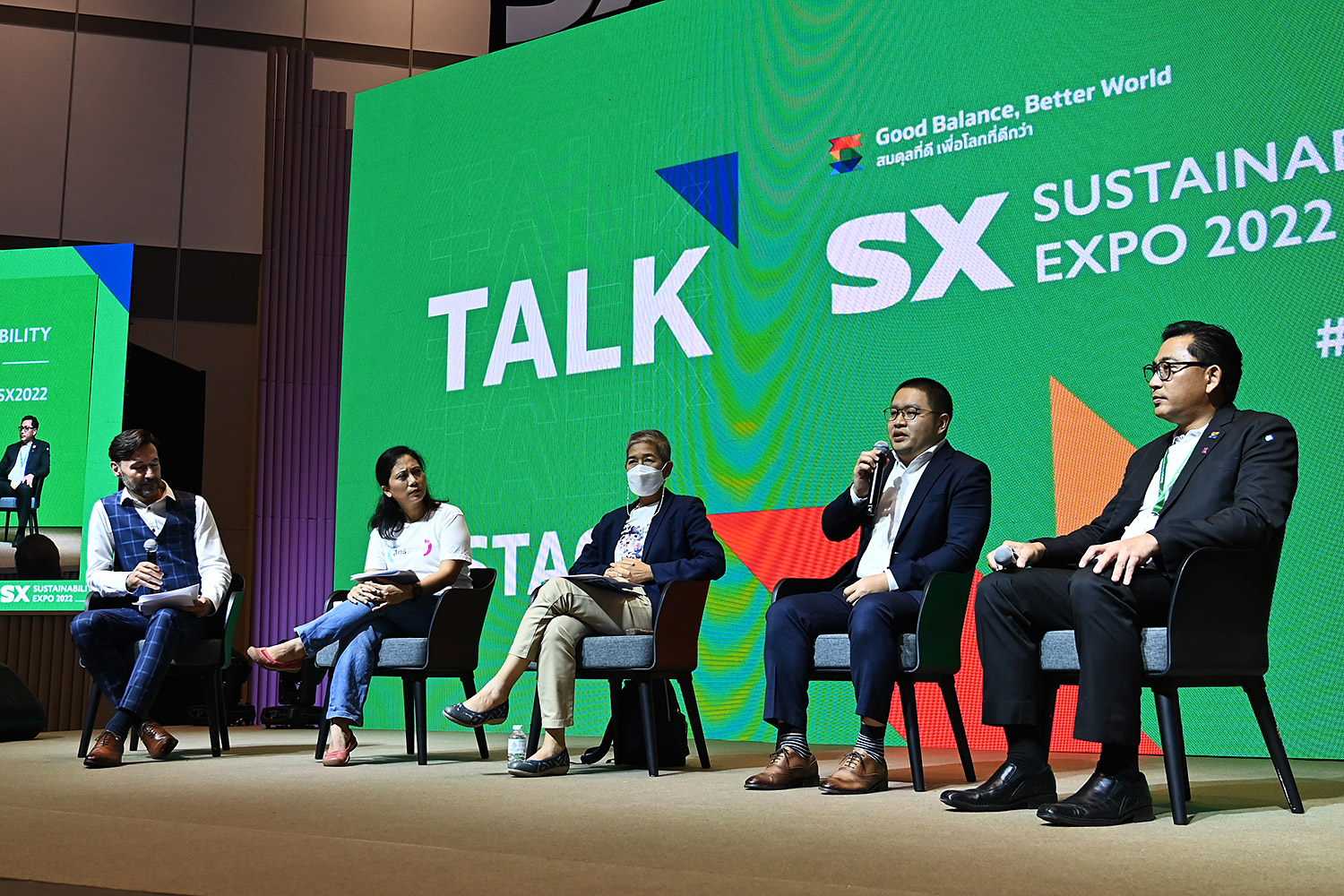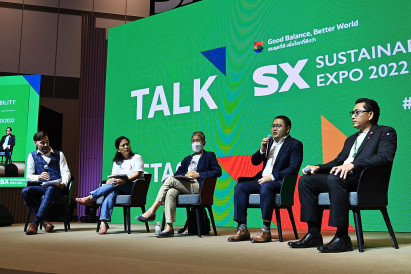
Thais and corporate citizens need to build resiliency, efficiency, and competitiveness to achieve a sustainable supply chain management network, according to Setha Thavisri, Direct Material Procurement Director, Pan International (Thailand). Pan International is an integrated and centralized procurement company under Thai Bev Group.
He was speaking at the seminar entitled ‘The future of sustainable supply chains: purpose and practicality’ at ASEAN’s largest SX Sustainability Expo 2022 at Queen Sirikit National Convention Center.
Setha went on to say that to achieve this goal and address the increasing impacts of climate change, the Thailand Supply Chain Network website was set up 3 years ago to educate, communicate, and connect all stakeholders including founding members, suppliers and partners, public organizations and regulatory bodies. The founding members include Thai Bev Group, CPF Group, BJC, SCG Group, Global Chemicals, Thai Union Group, Srithai, Bangkok Bank, and TBC.
This network is aimed at exchanging knowledge on product procurement and distribution through the use of digital technologies, innovation and showcases, financial services, and other related services. Qualified SMEs can join the platform and benefit from the network as well.

With 3,000+ local partners, Thai Bev Group is well aware of the importance of and the incentives required to drive sustainability in the long run as consumer behaviors continue to shift toward more environmentally friendly and sustainable development. Government stimulus strategies also exist, as do compliance requirements and the global trend toward the BCG (Bio-Circular-Green) Economic Model, as well as international standards on sustainability which are widely imposed and regulated.
Based on World Economic Forum’s The Global Risks Report 2022, environmental risks dominate concerns for both short-term and long-term perspectives. The top 5 environment risks are climate action failure, extreme weather, biodiversity loss, natural resource crisis, and human-made environmental damage.
Climate action failure is also considered the most critical threat to the world with the highest potential to severely damage societies, economies and the planet.

Weenarin Lulitanonda, co-founder, Thailand Clean Air Network & Senior Consultant, World Bank, said that PM2.5 air pollution is one of the key climate action failures in Thailand and has been a structural problem over the past years. Weenarin made the point that it is a human right to breathe clean air and it is therefore the obligation of the government to take serious action on this structural problem.
Weenarin said ThailandCan.com was set up recently to encourage and create public awareness and actions on environmental protection. The latest campaign is to support the enactment of Clean Air Act Thailand with 3 supporting papers: Clean Air White Paper (guide to fundamental problem of air pollution), Clean Air Blue Paper (insights on the impact of air pollution and its root cause), and Clean Air Green Paper (proposed solutions by experts to come up with clean air).
Sriprapha Petcharamesree, Ph.D, Advisor, Institute of Human Rights and Peace Studies, Mahidol University, said most Thai companies do not have a human rights due diligence (HRDD) process. HRDD enables corporates to have a responsibility to respect human rights on labor protection and other issues.


